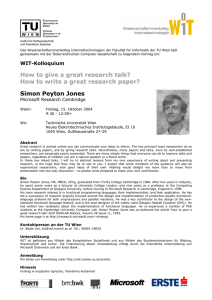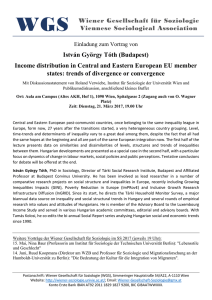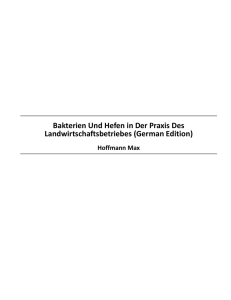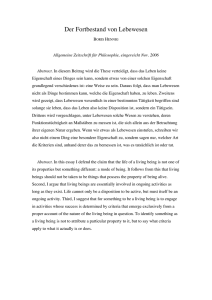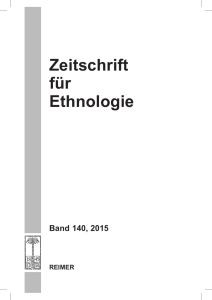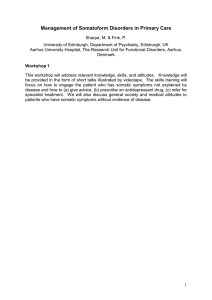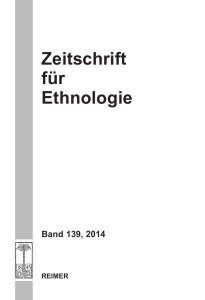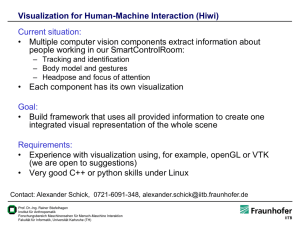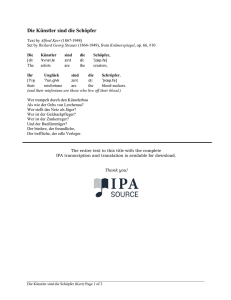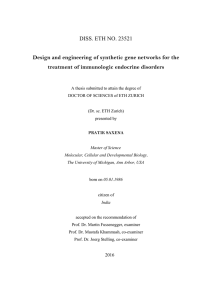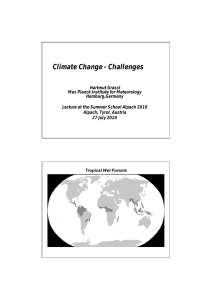Masterarbeit
Werbung
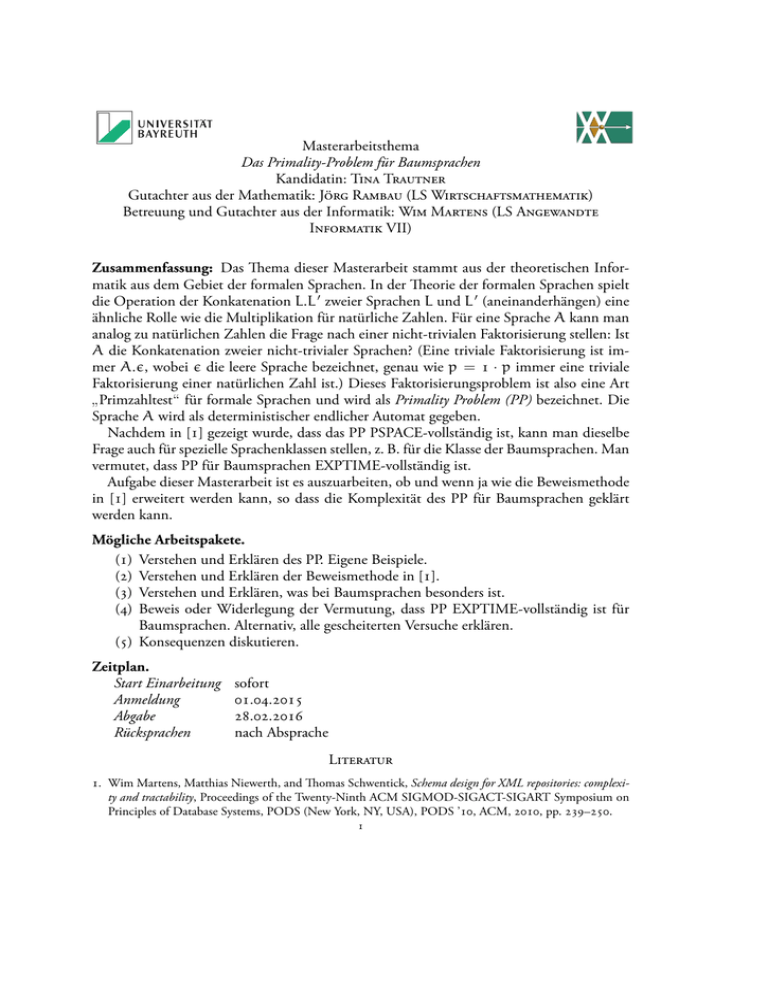
Masterarbeitsthema Das Primality-Problem für Baumsprachen Kandidatin: T T Gutachter aus der Mathematik: J R (LS W) Betreuung und Gutachter aus der Informatik: W M (LS A I VII) Zusammenfassung: Das Thema dieser Masterarbeit stammt aus der theoretischen Informatik aus dem Gebiet der formalen Sprachen. In der Theorie der formalen Sprachen spielt die Operation der Konkatenation L.L 0 zweier Sprachen L und L 0 (aneinanderhängen) eine ähnliche Rolle wie die Multiplikation für natürliche Zahlen. Für eine Sprache A kann man analog zu natürlichen Zahlen die Frage nach einer nicht-trivialen Faktorisierung stellen: Ist A die Konkatenation zweier nicht-trivialer Sprachen? (Eine triviale Faktorisierung ist immer A., wobei die leere Sprache bezeichnet, genau wie p = · p immer eine triviale Faktorisierung einer natürlichen Zahl ist.) Dieses Faktorisierungsproblem ist also eine Art Primzahltest“ für formale Sprachen und wird als Primality Problem (PP) bezeichnet. Die ” Sprache A wird als deterministischer endlicher Automat gegeben. Nachdem in [] gezeigt wurde, dass das PP PSPACE-vollständig ist, kann man dieselbe Frage auch für spezielle Sprachenklassen stellen, z. B. für die Klasse der Baumsprachen. Man vermutet, dass PP für Baumsprachen EXPTIME-vollständig ist. Aufgabe dieser Masterarbeit ist es auszuarbeiten, ob und wenn ja wie die Beweismethode in [] erweitert werden kann, so dass die Komplexität des PP für Baumsprachen geklärt werden kann. Mögliche Arbeitspakete. () Verstehen und Erklären des PP. Eigene Beispiele. () Verstehen und Erklären der Beweismethode in []. () Verstehen und Erklären, was bei Baumsprachen besonders ist. () Beweis oder Widerlegung der Vermutung, dass PP EXPTIME-vollständig ist für Baumsprachen. Alternativ, alle gescheiterten Versuche erklären. () Konsequenzen diskutieren. Zeitplan. Start Einarbeitung Anmeldung Abgabe Rücksprachen sofort .. .. nach Absprache L . Wim Martens, Matthias Niewerth, and Thomas Schwentick, Schema design for XML repositories: complexity and tractability, Proceedings of the Twenty-Ninth ACM SIGMOD-SIGACT-SIGART Symposium on Principles of Database Systems, PODS (New York, NY, USA), PODS ’, ACM, , pp. –. A A. W I Der Betreuer aus der Informatik schreibt hierzu: The language primality problem for deterministic finite automata (DFA) on words is defined as follows: Given a DFA A, are there two regular languages L1 and L2 such that the language L(A) of A can be written as the concatenation of L1 and L2. Here, both L1 and L2 should be different from the singleton epsilon. The complexity of the language primality problem has been investigated since 1999 [1] and was shown to be PSPACE-complete in 2010 [2]. The crucial step in the 2010 result was in the proof of PSPACE-hardness of the problem, which went through a technique of Jiang and Ravikumar [3], showing that concatenation universality of DFAs is PSPACE-hard. The topic of this thesis is to investigate the complexity of language primality problem deterministic automata on trees. Concretely, the plan is to - provide a clean definition of the problem on trees; - prove a complexity upper bound for the problem; - adapt the techniques in [2] and [3] to the setting for trees, so as to obtain a complexity lower bound for the problem as well. It is to be expected that the student will need to incorporate technical material on two-player corridor tiling games [4] in order to adapt the problem to the tree setting. [1] A. Salomaa and S. Yu. On the decomposition of finite languages. In Developments on Language Theory, pages 22–31, 1999. [2] W. Martens, M. Niewerth, and T. Schwentick. Schema design for XML repositories: complexity and tractability. International Symposium on Principles of Database Systems (PODS), pages 239-250, 2010. [3] T. Jiang and B. Ravikumar. Minimal NFA problems are hard. Siam Journal on Computing, 22(6):1117–1141, 1993. [4] B.S. Chlebus. Domino-Tiling Games. Journal of Computer and System Sciences 32(3):374-392, 1986.
